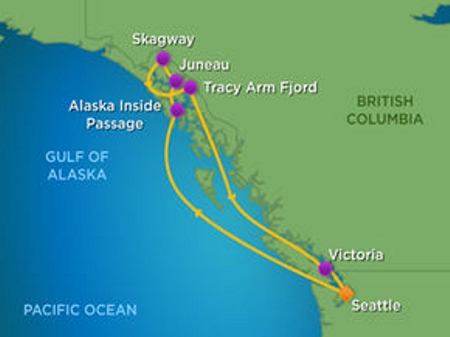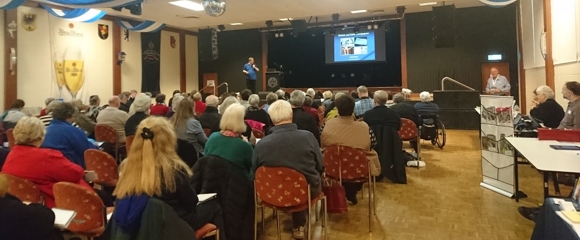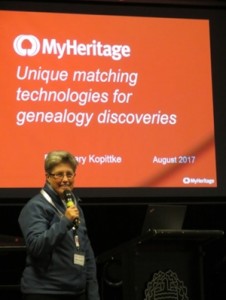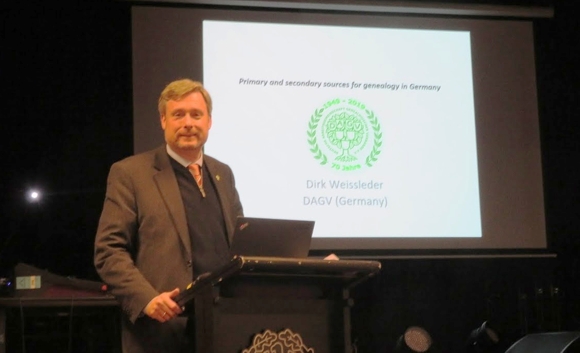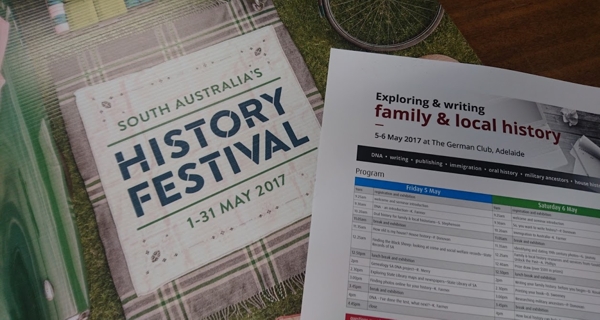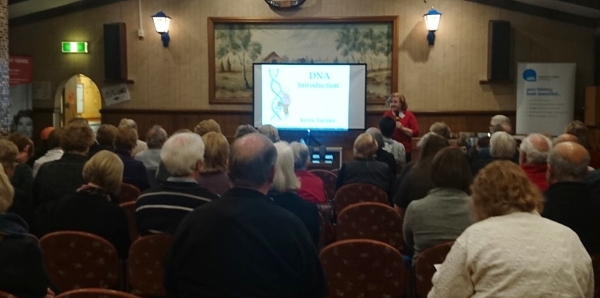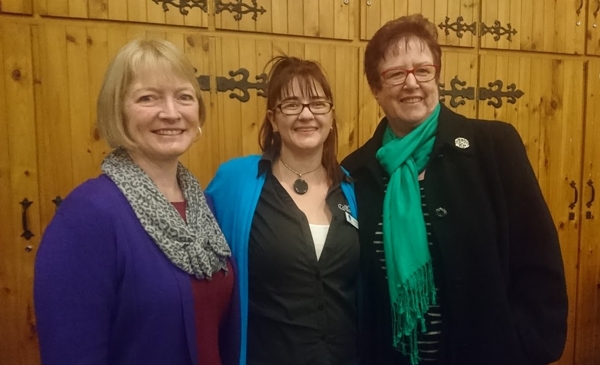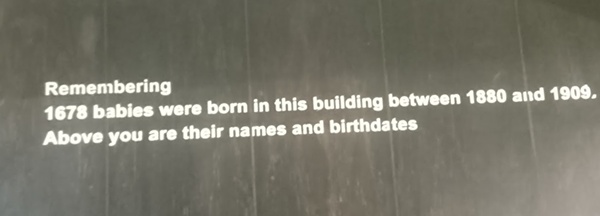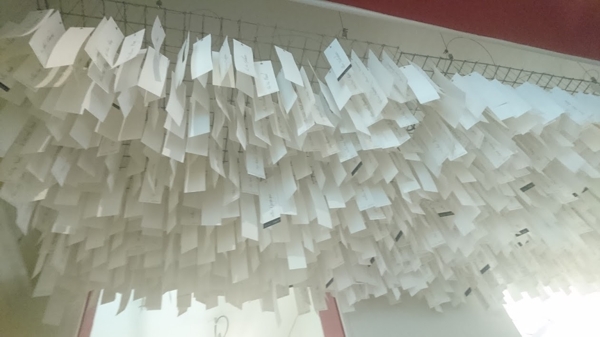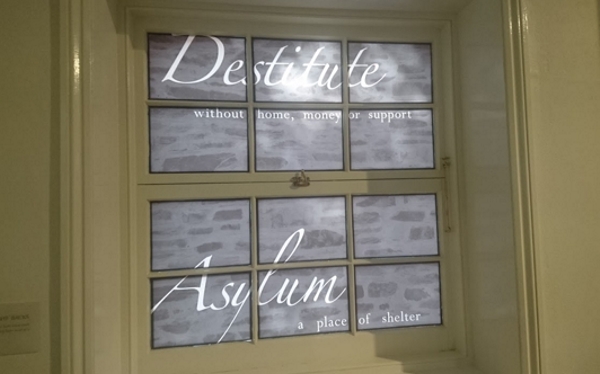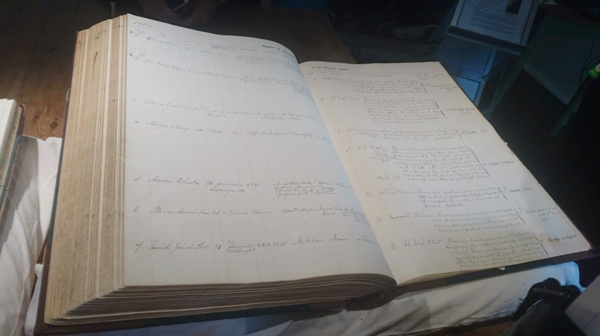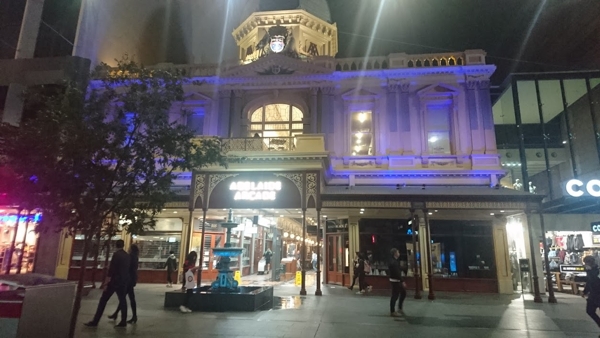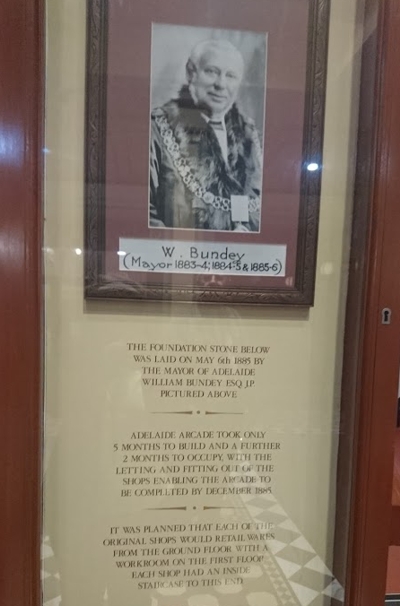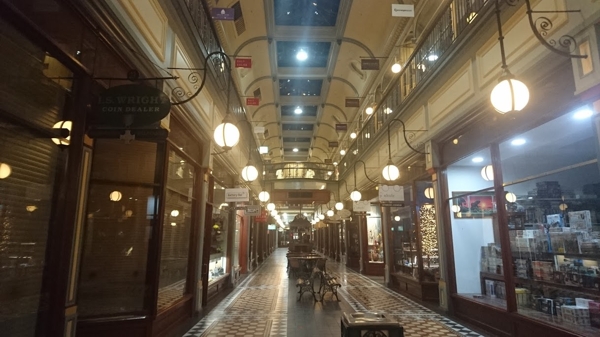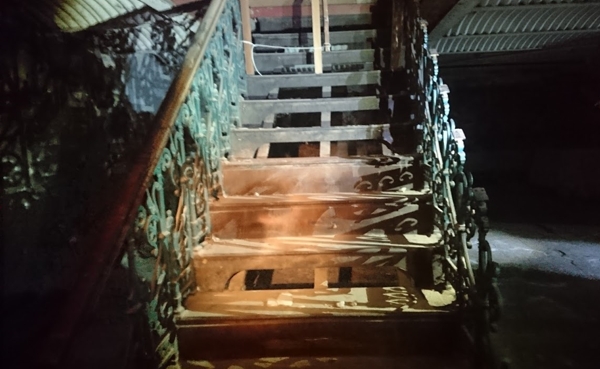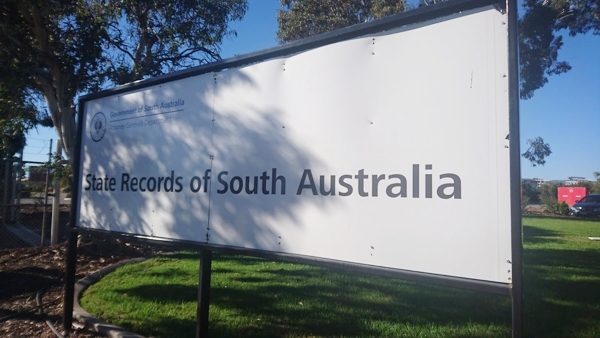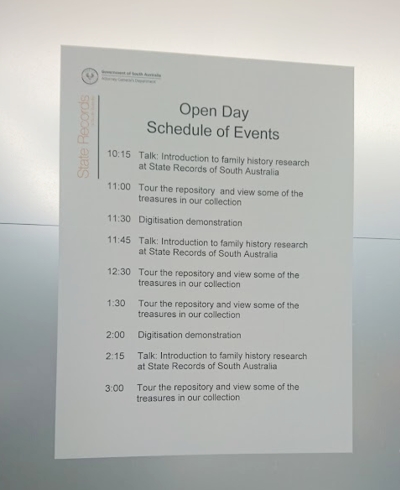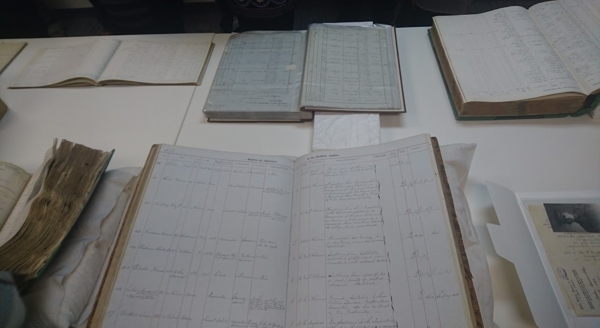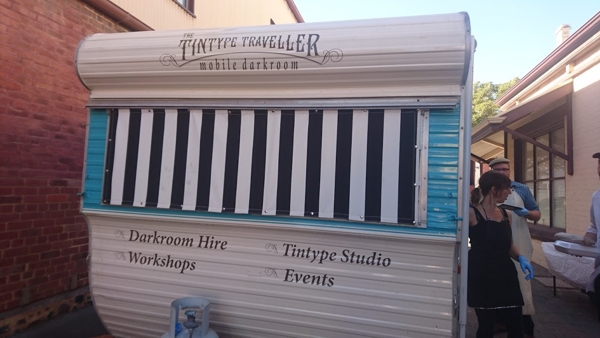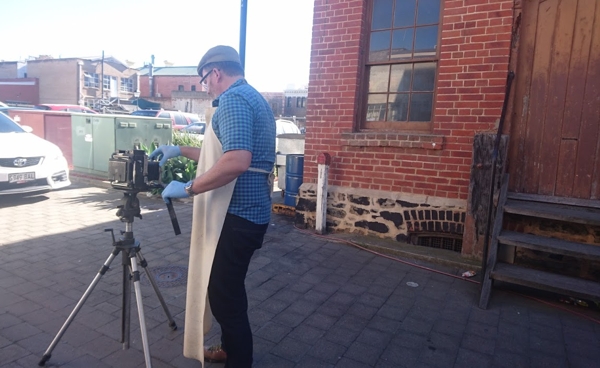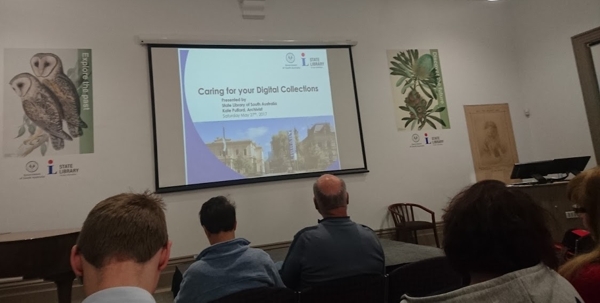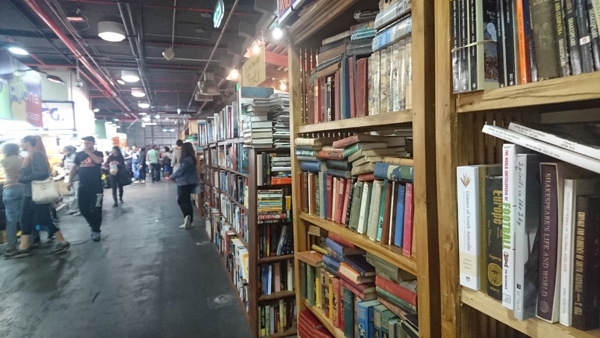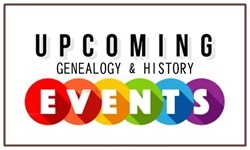Counting Down to Geneacruising Alaska in 2018
What’s better than a cruise? A genealogy cruise of course. Well, it is in my opinion anyway, and I’m already looking forward to my next one … Alaska.
In September 2018 (7 September 2018 to be exact), Unlock the Past’s Alaska cruise will leave from the docks at Seattle, USA, and head up the coast for a 7 day cruise to Alaska and back.
I have seen some amazing places on previous cruises, but I’ve not been to Alaska. But everyone who has, tells me it is absolutely incredible, so I’m looking forward to it. But then combine the amazing scenery with a phenomenal ship that has everything catered for, and a genealogy conference with world-class speakers … what’s not to love?
So yes, I’m counting down!
WHEN: 7-14 September 2018
ITINERARY: Seattle, USA > Inside Passage, Canada > Juneau, USA > Skagway, USA > Tracy Arm, USA > Victoria, Canada > Seattle, USA
SHIP: Royal Caribbean’s Explorer of the Seas
COST: from AU$1471 (approx US$1100, GB£870) and includes all onboard accommodation, standard meals, taxes, gratuities and conference cost.
PRESENTERS:
Chris Paton (Scotland)
Dick Eastman (USA),
Dr Janet Few (England)
Jan Gow (New Zealand)
Caroline Gurney (England)
Shauna Hicks (Australia)
Cyndi Ingle (USA)
Eric Kopittke (Australia)
Rosemary Kopittke (Australia)
Mike Murray (Australia)
Mile High Transcripts (USA)
Michelle Patient (New Zealand)
Pat Richley-Erickson (aka Dear Myrtle) (USA)
Helen Smith (Australia)
… and more still the be announced!
So apart from the awesome group of speakers, and meeting with a great bunch of other genealogists, there are still further benefits of genealogy cruising:
– there are no meals to prepare (not even mentioning the incredible buffets on offer)
– no housekeeping (your room is tidied everyday by cruise staff)
– and you can get up at whatever time you wish (true!!)
You can also choose whatever mix of genealogy, relaxing or all the luxuries and entertainment that is offered on one of the biggest cruise ships in the world. And it is the perfect event for your non-genealogy partner to join you.
I can highly recommend genealogy cruising. It really is the best of both worlds. You get to visit amazing places, while enjoying a genealogy conference. You can learn from so many of the best, and make a bunch of new friends as well.
Come and join me, I guarantee you’ll have a ball.
For more information, pricing and booking, please visit the UTP cruise website.
https://www.unlockthepastcruises.com/2018cruisealaska/
And keep up to date with the latest UTP cruise news by following their Facebook page.
Unlock the Past’s Researching Abroad Roadshow in Adelaide
Earlier this week I was fortunate enough to attend the Unlock the Past Researching Abroad Roadshow, with Chris Paton from Scotland and Dirk Weissleder from Germany as the key speakers.
This two day seminar was designed specifically for those who are researching their British Isles (particularly Scotland and Ireland), and European (particularly German) ancestors. But first up a little disclosure: technically I went as part of the organising committee (Unlock the Past), and as an exhibitor (Gould Genealogy). But still, I got to enjoy, learn and be inspired by such great speakers … so I wasn’t complaining.
Chris and Dirk, along with others from the Unlock the Past crew have been touring Australia and New Zealand for the past 2 1/2 weeks already, with Adelaide being stop six of seven. Perth is the last one, which is on today, before they head on home.
DAY 1 – Wednesday
Chris kicked of the event by talking about British and Irish Newspapers, and says that if you haven’t been using newspapers as part of your research – you should be. There was a new-to-me Irish one he mentioned which was the Irish News Archive. A pay-site, they offer a 1 day, 1 month and year options, so that will be something I need to check out when I tackle my Irish lines. Also be check which edition of the newspaper you’re looking at of that day (early edition or late edition) as they can vary.
Chris did three other talks throughout the day: Scottish research resources before 1800, British censuses and substitutes, and Irish family history resources online. I’ve got a bunch of notes scribbled down together with web addresses to check out … so really, I just need more time to research, and an interpreter to make sense of my notes. 🙂
Apart from Chris’ talks, Eric and Rosemary Kopittke did a talk on MyHeritage which was great, as I do have a subscription to it, but I’ll be honest, I haven’t used it to advantage, so I’ve learnt some tricks for searching the site which will be useful. We also got to see a Living DNA video that featured David Nicholson and Hannah Morden (founders of the company), and they discussed how Living DNA started, what their goal is, how to take a test, and what you can expect when you get your results. Marie from GenealogySA also gave a talk, highlighting all the resources they hold that are relevant to British Isles research – and I’m sure I wasn’t the only one who found out they had a whole lot more than I realised.
DAY 2 – Thursday
Day 2 was European and German day, with Dirk Weissleder being the primary speaker. Dirk is the National Chairman of the Deutsche Arbeisgemeinschaft genealogischer Verbände e.V. (Dirk did tell us how the German LOOOOOVE their long words) but we’ll just call it the DAVG (www.dagv.org). So the DAGV is the umbrella organisation of the genealogical groups in Germany and currently they have 67 groups/associations which totals more than 22,000 members. Not bad eh? I’ve not even tried to follow Mr Lonetester’s German lines to date, so all of Dirk talks were useful. From learning about the resources, to understanding that there was no “Germany” before 1871, to the restrictions on records, and even about German mentality and their way of thinking. As Chris did in his talks, Dirk gave us a bunch of websites to check out which I’ve added to my “must check out” list.
For those who think that German is just too hard because of the “old German writing”, German’s themselves have the same trouble. So don’t despair. If you persevere, not only will you gain a valuable skill, but also just think of all the amazing records that you’ll be able read and understand that you wouldn’t have otherwise. And just a tip: German’s like to be on time, and like order. So if you’re planning on visiting Germany, you’d better be sure go with a plan.
Ben Hollister from GenealogySA’s German/European Special Interest Group gave a talk on the resources that they society holds that are relevant for researchers. The primary collections are the Dulcie Love Migrant Card Index, which gives info on over 23,000 German migrants to South Australia. As well as Dulcie Love’s Folder Collection. The red folders contain information on German surnames, with the green folders being general info on Germany and European research and this is a BIG collection of folders. We’re talking shelf-fulls, not just a few. Anyway these records are ONLY available to view at GenealogySA’s premises at Unley. As one of the co-founders on the German-Australia Genealogy and History Alliance (GAGHA), Ben also spoke on what this is, and how it’s useful for people. Essentially it is a place where German Groups and German Interest Groups can be a part of, and collaborate together. With a number of projects underway, the group is already compiling a German Surname Interest list, so you can always add those you’re researchign there, or check it to see if anyone is researching the same names as you. Apart from that they compiling a “Change of Surname” database, so German names that got radically changed can be hard to track – but this should help. You can read more about these and GAGHA at http://germanheritage.org.au/research.
Janette Lange was the guest speaker for the Lutheran Archives, and unfortunately I didn’t get to hear all of this talk, but I did hear that even though the Archives are based in Adelaide, they do have records that relate to Lutherans and Germans Australia-wide … so that’s something to keep in mind. I also visited their stand later and found that they do have records relating to Mr Lonetester’s German families. So a trip to the Lutheran Archives at Bowden is in order in the future.
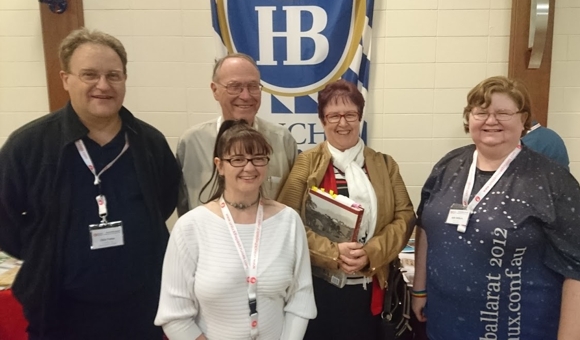
the geneablogger group photo in Adelaide:
Chris Paton, Eric Kopittke, me, Jenni Gay and Kylie Willison
So it was a busy two days of learning, working at the Gould Genealogy stand, and catching up with genie-friends.
—————————————————–
I wanted to say a BIG thankyou to Chris Paton and to Dirk Weissleder … sorry about our lousy, cold winter weather, but thankyou for coming to Australia, and sharing your knowledge with so many along the way. I know it’s been a whirlwind trip for you, but I do hope you enjoyed the visit, and managed to see a few sites along the way.
This Time I’m an Ambassador
I’ve been to many genealogy events over the years. Local South Australian ones, big Australian ones, and even bigger International ones, and while I’ve written about many of them over the years, I’ve never taken on the role of “Official Blogger”, or the more recent term of “Official Ambassador”… at least until now.
Unlock the Past’s “Researching Abroad Roadshow” is coming up in August 2017, and I’m excited to say that I will be an Official Ambassador (ie. Official Blogger) for the event. I will be going to the Adelaide leg of their tour (23-24 August), and will get to hear both Chris Paton (from Scotland) and Dirk Weissleder (from Germany) speak, together with other guest presenters on DNA, as well as British Isles and European resources that are available to use locally.
I have met Chris a number of times over the years, and he’s one of the funniest and easiest people to listen and learn from, and his knowledge of Irish and Scottish research and records is incredible. While I haven’t heard Dirk speak, he was a speaker at RootsTech earlier this year, so I managed to meet him there, and I look forward to catching up again, and learning how to to go about researching Mr Lonetester’s German roots. It’s always been one of those “I’ll get to it sometime” branches.
Anyway going to an event is not only inspiring, and a way to learn and get totally enthused, but you also get a vibe from meeting others who love genealogy just as much as you do! So they totally understand.
As an Ambassador I’ll be reporting about how it all went in due course. But why not come along anyway. The Roadshow will be visiting Auckland, Brisbane, Sydney, Melbourne, Canberra, Adelaide and Perth.
Check out the details on the Roadshow below. You can find out when and where the event is on, the cost, the facilities at the venues, the program, and of course more about the speakers. And if you pre-book you get a cheaper rate AND go into the draw for $1000s in prizes.
So check it out …. Researching Abroad Roasdshow: Finding British Isles and European Roots
For those who won’t be attending, you can follow the official hashtag #utproadshow17 on social media, and see what others are Facebooking, Tweeting, Instagramming, Pinteresting, Google+ing and Blogging about it.
South Australia’s History Festival 2017 in Review
Well May came, and May went … and to say it flew by is an understatement. So that means bye, bye to South Australia’s History Festival for another year.
As far as attending events, I did better this year than I have in the past, as I planned ahead and made sure I booked into things early, and I even managed to get a little time off to go to some but I had to stop looking at the program, as I was just getting annoyed at all the awesome things on, that I couldn’t get to.
Anyway I promised a mini review of the events I went to, so here goes …
Friday 5 May 2017 & Saturday 6 May 2017
Exploring & Writing Family & Local History seminar
organised by Unlock the Past
This seminar was organised by my work, so I was partly working at the event (manning the Gould Genealogy display tables). But as our tables were in the same room the talks, I got to hear them too. There was 16 talks packed into 2 days, so it was pretty full on, but the talks were great, and much was learned. There was a great turnout for the event with a number coming from country South Australia, and even a few from interstate. I’m not going to write a review of each talk, but there was many great points gained from them. House history, maps, DNA, writing your history, oral history, photos, black sheep and so much more was covered. As a bonus I got to catch up with two fellow geneabloggers, and that’s a real treat as there doesn’t seem to be too many of us in South Australia.
Monday 8 May 2017
Meet the Old Colonists photographs display
organised by the State Library of South Australia
When I heard about this display, I knew it was something I had to go and see. … and it was totally worthwhile. These huge photographs are a collage of around 500 men and 500 women all who were ‘pioneers’ of South Australia (meaning they arrived in South Australia prior to 1841) and were members of the Old Colonists’ Association. I do have a number of ancestors who fit into the ‘old colonists’ category, but I don’t know if they were members of the Association. However I did find a 3x great grandpa pictured there, so that was very cool. There is an amazing story behind these incredible pictures. You can read more about them here: http://www.gouldgenealogy.com/2017/05/meet-old-colonists-south-australias-pioneers/
This display wasn’t put up “just” for History Month. My understanding is that it’s there permanently. So whenever you’re in the city and near the State Library of SA, pop in, go upstairs and check out these spectacular photos for yourself.
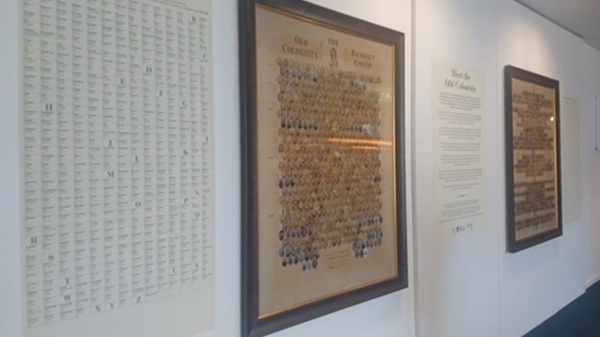
South Australia’s Old Colonist’s photos at the State Library of South Australia. The men’s photo is the one on the left, with the women’s photo on the right.
Monday 8 May 2017
Bringing the Past to Life: Destitute Asylum
organised by the Migration Museum
Destitute records aren’t records I’ve ventured into as yet, but I do know that at least one family member found herself in and out of the system, so I thought this would be a good talk to go and learn about them. Held in the city at the Migration Museum (which is the where the old Destitute Asylum used to be), staff from State Records SA came to show and discuss the types of records you’ll find they hold that relate to those who were at the Asylum. They explained how records at the Destitute Asylum are often the only record available for that person. Truly incredible, and very sad, but these records are amazing. We also had a tour of the a portion of the Migration Museum, which used to be the Women’s Lying-In Hospital, and head about the babies that were born and died there.
Thursday 18 May 2017
Adelaide Arcade Ghost Tour
organised by Adelaide’s Haunted Horizons Ghost Tours
Doing a tour of the Adelaide Arcade was something that I’d wanted to do last year during History Festival, but missed out. So this time I booked early. Mr Lonetester even came with me to this, and we joined a group of others for a two hour history lesson and walking tour of the Adelaide Arcade.
The tour started at 7.30pm on a Thursday night, after all the shops had closed, and that itself was an interesting feeling being the only ones in Rundle Mall at that time. We learnt about when and how the place was built. We learnt that it’s the oldest Arcade in Australia having opened in 1885, and that incredibly it took only 5 months to build? Along with the 50 shops downstairs with housing for the shopkeepers upstairs, it was also the first (or one of the first) to have electric lighting in Adelaide, so it was very fancy indeed! And did you know that there were public baths in a portion of the Arcade? What about the downstairs tearooms?
And have you heard of Francis Cluney? He was the caretaker of the Arcade until a tragic accident there in 1887. It is said that his ghost roams the corridors there. The security guard who came with us on the tour, talked about strange things he’s encountered while working there, along with stories from current tenants.
We were taken in side corridors, storage rooms, upstairs, down into the basement (which was the old tearooms) and more. Unless you hear the history of this place as you tour it, you really don’t appreciate it.
I am now completely fascinated by this place and can’t believe I didn’t know the history of it before. Anyway stay tuned for more on the Arcade, there’s amazing history and stories here which I’ll write about in more detail.
Sunday 21 May 2017
Archives Open! State Records SA Open Day
organised by State Records SA
The Open Day at State Records started at 10am and went for most of the day with talks, tours and a bbq lunch. As the talks and tours were repeated I found I didn’t need to stay all day, which worked out well as I had another event I wanted to get to.
Anyway the State Records SA was established back in 1919 “to collect and preserve the archival records of the South Australian State Government”. Since then they now have over 70 kilometres of records on shelves in their collection. They are the place to look for immigration records, colonial secretary’s records, land records (titles and maps), schools, social welfare and hospital records, law enforcement (including prison and trials), public employees (including teachers, railway workers and more), local government records including rate books, and WW1 photos. They have a collection of photos of over 3000 South Australian’s who were in WW1. These are in the process of being digitised and put up on Flickr.
If you haven’t been to State Records SA before or haven’t been on the “behind the scenes” tour … it’s mind blowing. And I have no doubt that while it seems large, I’m sure it’s small compared to many other archives interstate and around the world. Still it is awesome to see so many of our State’s records being preserved.
And it’s a good reminder of just how many records AREN’T online, and that I should visit them more.
Sunday 21 May 2017
The Tintype Traveller
organised by the South Australian Maritime Museum
The Tintype Traveller was part of the “Retro Lens” event put on by the South Australian Maritime Museum, where they had a whole day dedicated to learning about and participating in vintage photography.
My interest though was purely in visiting the Tintype Traveller to get an old tintype portrait picture taken. The Tintype Traveller is a vintage caravan that has been converted into a custom-designed darkroom, which allows photographers the ability to use traditional photographic processes on location.
So I went to Port Adelaide and found their caravan, but what I didn’t count was them having been booked up in advance. So alas, I didn’t get my picture taken which was disappointing. However the lovely people from the Tintype Traveller let me stand and watch the process of developing the tin photos in their caravan, so that was very cool.
Anyway I’ll just have to keep an eye out and see where they’ll be taking their caravan next, and try to get in.
As I don’t have any tintype photographs to show you, I’ll simply direct you to a video that they have produced, and to their Facebook Page, which has a number of pics they’ve taken. And you can read more about them here.
Sunday 27 May 2017
Caring for your Digital Collections talk
organised by the State Library of South Australia
While I believe that I’m fairly au fait with keeping things safe and up to date as far as storage and accessing digital records etc. I felt this would be good to go to, as there’s always something to learn.
Kate Pulford who is an Archivist at the State Library of SA says that we “need to monitor and protect your digital memories”. Emails, websites, photos, scans all classify as a “digital collection”. A key phrase she used was that “digital information is fragile. Once it is list, it can be lost forever”. So she suggests making a plan to review your storage methods every 3-5 years and migrate to a newer method as required. For instance who has backups on old 31/4″ floppy disk? Can you still access them? What about CD-ROMs? So many computers these days come without a CD drive, so it won’t be long before they are obsolete. She also showed those at the talk her method of recording what was what on each storage device and when it was last backed up. For this she simply uses an Excel spreadsheet.
And just for information she did advocate using the cloud, but only as a 3rd backup option. Instead use option 1 and 2 (external harddrives placed in separate locations) first.
Sunday 27 May 2017
Adelaide’s Pop-up Bookshop
organised by Adelaide’s Pop-Up Bookshop
This was one event I have to say I was very disappointed with … advertised as :
“Hundreds of South Australian history books have been specifically brought in to be explored, including a rare copy of Lost Adelaide – a treat for history buffs! Transport yourself to other times and places with histories on local regions and families. Books available for viewing and purchase.”
Held in Adelaide’s Central Market I found the range the Pop-up Bookshop had was very limited, and the prices seemed pricey. But anyway, I’m sure they would have appealed to some. But honestly I found the Central Market Bookshop (also in the markets) more interesting.
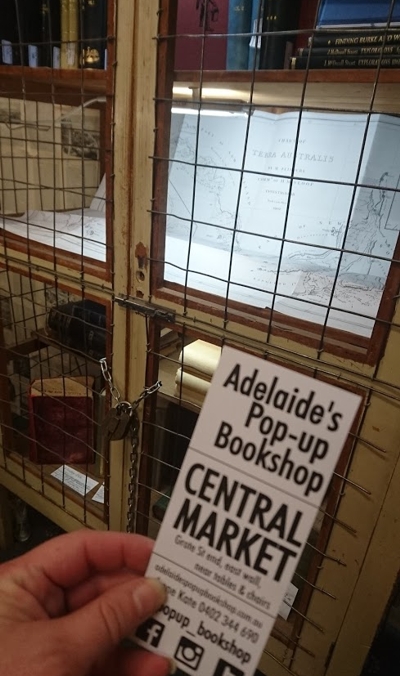
Adelaide’s Pop-Up Bookshop in the Central Market. By the look of that lock I assume there were the super-duper pricey books
As always there was at least another 100 things I would have loved to have gone to, but time and work didn’t allow it … still I got to go to some, and enjoyed learning more about records and South Australia’s history.
But that’s it for another year of South Australian’s History Festival events. With 356 different organisers, and over 600 events held it was a HUGE month. I just hope that even a portion of them will consider holding an event (or even the same event) for National Family History Month in August, that would be awesome.
And one last shoutout must go to the History Trust of SA, who are the co-ordinators of this event. Without their organisation and promotion, History Month simply wouldn’t happen. THANKYOU … you’ve done an awesome job, and I’m sure that it’s because of the backend organisation that the event continues to grow each year.

